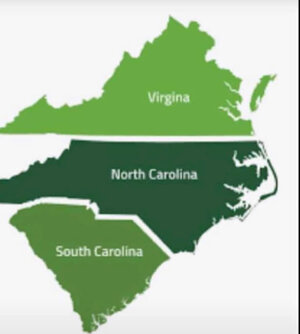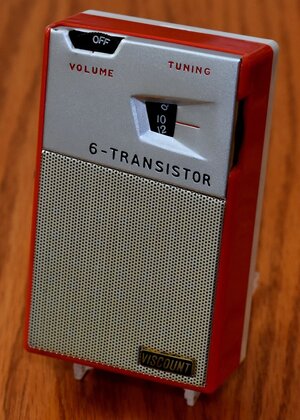Navigation
Install the app
How to install the app on iOS
Follow along with the video below to see how to install our site as a web app on your home screen.
Note: This feature may not be available in some browsers.
More options
You are using an out of date browser. It may not display this or other websites correctly.
You should upgrade or use an alternative browser.
You should upgrade or use an alternative browser.
This Date in History
- Thread starter nycfan
- Start date
- Replies: 603
- Views: 10K
- Off-Topic
Easy trivia question - which battle happened after the Treaty of Ghent was signed?Treaty of Ghent
On this day in 1814, the United States and Great Britain signed the Treaty of Ghent in Belgium, ending the War of 1812, marking a decline of American dependence on Europe, and stimulating a sense of U.S. nationalism.
donbosco
Inconceivable Member
- Messages
- 2,703
Can’t spell Virginia!
All my life I’ve heard the phrase, “A Vale of Humility” to describe North Carolina. It is a disarming description to be sure but it serves as a preface to a smack down when the finish reads, “…between two Mountains of Conceit.” What great irony to be so proud of one’s humbleness.
As I have pondered this phrase more recently and fallen down the rabbit holes researching it I’ve found that the genesis of the saying is, and believably so, attributed to the colonial period when North Carolina was noticeably poor in comparison to the plantation export producing slavocracies of Virginia and South Carolina. A number of factors made for North Carolina’s relative poverty but the One-Two Punch of The Outer Banks-Graveyard of the Atlantic geography is the place to start as it influenced just how the invasion of Europeans of the so-called Age of Exploration literally entered the state, i.e., not by ship. After all, we tell the tale of The Lost Colony to any and all who will listen and it is one of failed settlement entering by sea.
So the colonizers mostly came to North Carolina by land, up from Charleston, or even more often, down from the ports of Philadelphia, Yorktown, and Norfolk, rather than sea. Wilmington, a not-too-bad port all things considered, frankly got a late start comparatively and the export of naval stores, the Tar of our Famed Nickname, just did not draw the wealth to it that tobacco, rice, and cotton did to our neighbor colonies.
The economics of the geography does not mean that North Carolina was not without the stain of slavery as a labor system from the beginning but it did mean that the giant plantations like those of Virginia and South Carolina were rare. Not only did that influence who moved into the colony but also where they settled. I’ve mentioned Noelleen McIlveena’s book, ‘A Very Mutinous People: The Struggle for North Carolina, 1600-1713’ before - there you can find the best recounting of this time and the motivations behind those colonizers if your interest is piqued. Mutinous well describes those invaders - so too would the terms, stubborn, willful, eccentric, maverick, and unmanageable. Many were fugitives of some sort, fleeing their past in so many cases.
How we got to ‘humility’ from ‘mutinous’ is an interesting story I am sure - but about it I can only speculate. I suspect that as Virginia moved toward the much heralded Birthing of Presidents and elite white South Carolinians hunkered down into the paranoid lifestyle of a Slave Society, the worldview that itself creates the nickname of Fire-Eater, North Carolinians settled into their own place between, one in which they flipped the script and became humble about their pride in being less prescribed, pedigreed, and pretentious but infinitely more pig-headed — errr, headstrong.
This was a round-about way of getting to the #OnThisDay for December 24: #OTD in 1937 Mary Van Landingham died (b. 1852). A Charlottean whose family’s roots were deep in The Old North State, she was a strong booster of Tar Heel literature and culture. During a speech in March 1900 at The Mecklenburg Historical Society she introduced the now-(in)famous phrase referencing The Mother of Presidents to our north, and The Fire-Eaters to our south. And so it went — and goes. Of course, she didn’t coin the phrase as it had long been too obvious to far too many. Mary Van Landingham, Long Remembered for Humility Quip
- Messages
- 1,102
Easy trivia question - which battle happened after the Treaty of Ghent was signed?
- Messages
- 1,042
All true, but if the British had won the Battle of New Orleans, Southern Louisiana would be, to this day, a British Overseas Territory, just like Gibraltar. Only difference would be New Orleans would be more economically valuable to Britian than Gibraltar.
donbosco
Inconceivable Member
- Messages
- 2,703
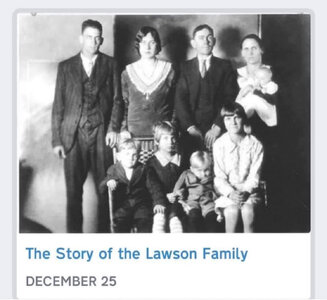
“On December 25, 1929, Charlie Lawson murdered his wife and six of their seven children before killing himself in Stokes County.
The tragedy occurred on their farm, just days after Charlie had taken the whole family into town, bought them new clothes and had them sit for a studio portrait. The eerie photograph, an unusual expense for a poor family of that era, indicates that Charlie likely considered the crime for some time before carrying it out.
His motive remains a mystery.
Charlie sent his 16-year-old son off on an errand before going to the tobacco barn where he shot and bludgeoned his two middle daughters, Carrie and Maybell. He then went to the house and killed the remaining members of his family, including four-month-old Mary Lou. He positioned the bodies by putting rocks under their heads and crossing their arms.
Afterwards, he hid out in the woods, apparently pacing around a tree while neighbors and police gathered at the house. All there heard the gunshot when Charlie took his own life.
The sole survivor of the tragedy, James Arthur Lawson, later married and had children before dying in an automobile accident in 1945.
The murder inspired a number of songs and stories, including a 1956 folk ballad recorded by the Stanley Brothers. The story of the murders was recently featured on the PRX podcast Criminal.”

The Story of the Lawson Family
On December 25, 1929, Charlie Lawson murdered his wife and six of their seven children before killing himself in Stokes County. His motive remains a mystery.
donbosco
Inconceivable Member
- Messages
- 2,703
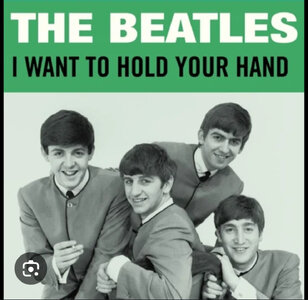
#OnThisDay in 1963 The Beatles released “I Want To Hold Your Hand” in the USA. I was 5. I doubt I heard the tune immediately but it wouldn’t have been long. My acquaintance with a good deal of popular culture and world events in those days came by way of the radio. In the kitchen gathering space of our home in #Bonlee was a tabletop AM model. Mornings found it tuned mainly to WPTF, the Raleigh clear channel station. There we got the news of North Carolina, the nation, and the world. The Farm Report wafted through the house during breakfast while the aroma of percolated coffee permeated the air.
The other station that old radio landed on was WNCA, 1570 AM out of Siler City. “Hip” kids like my brother called it WIN-CAH. There Chathamites dialed up the voice of Shug Edwards for local news, sports, and the all-important “Obituary Column of The Air.” ‘Esther K’ was WNCA’s ‘other’ voice and she brought us the music. Somehow by 1964 my brother had become a DeeJay at WIN-CAH. He was just 15 when he started and I remember my Momma running him up to the station, getting him out of his 6th period Study Hall in Bear Creek so that he could spin the Top 40 as the kids hit the road at the end of the school day. Soon he turned 16 and took himself to the station.
Think on that for a moment. The year was 1964. The Beatles were kicking off the British Invasion, Motown was dropping Soul Classics daily, and unique to The Carolinas a brand of Rhythm ‘n Blues dubbed Beach Music was already thriving. My brother had quite a platform in that teen-age drive-time slot and the play list was can’t miss stuff.
As I recall, the old folks around Chatham were kind of in on it by accident. Dedicated to the Siler City station for local enlightenment they were set on WNCA already so they endured, maybe even ‘dug’ what Esther K and Brother Glenn were playing as they waited for Shug Edwards to bring them the Word.
A very pesky little brother, a true “little pitchur with big ears,” I was into the music from earliest memory. As a Cub Scout I remember a puppet making project in which I recreated The Beatles with bangs and cardboard guitars. I knew the words to those songs too. Maybe the truest genius of those early long-haired Liverpudlians was the simplicity of their lyrics.
“Oh, yeah, I'll tell you somethin'
I think you'll understand
When I say that somethin'
I want to hold your hand.”
“She loves you Yeah, Yeah, Yeah” just needs no interpretation after all.
There was also an awful lot of car and truck riding in those days - down to the farm, over to Siler City to Grandmother’s or Aunt Lila’s house, to the hospital to visit the sick, or church and ball games. So again, the radio - Siler City in the daytime (WNCA shut down with the sunset) and Raleigh most others - was the connection with the world.
By 1970 WKIX stepped up and crazy man Pat Patterson had the music and the comedy and then in 1972 - on December 26 in fact, WQDR-FM stepped into the fray. Most cars didn’t even have a FM capability at the time but some tabletops and transistors did. So we steadily found our way to Album Rock and DeeJays Jo Leigh and Daniel hipped us all up to The Sound of The Seventies. FM Converters for our cars were all the rage. Of course a good 8-Track Player was also a must-have. It was a good time musically.
So today’s #OnThisDay is a two-fer — one a globally transformative event - the 1963 release of “I Want To Hold Your Hand,” and the other regionally significant - the 1972 inaugural broadcast of WQDR-FM in Raleigh (First track was ‘Bitch’ by The Rolling Stones). Interesting Audio Times.
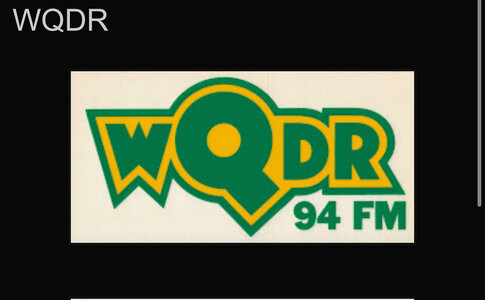
Last edited:
donbosco
Inconceivable Member
- Messages
- 2,703
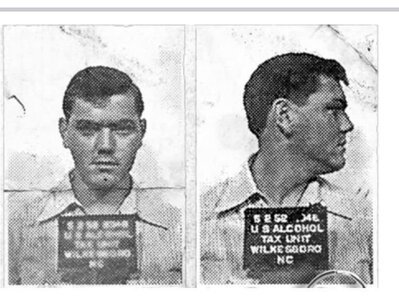
Timely Look Back. #OTD in 1985 Jr. Johnson (Wilkes County) was pardoned for a 1956 moonshining conviction by President Ronald Reagan. Johnson ‘ran’ illegal liquor before his Hall of Fame NASCAR career & was a successful car owner & businessman after retiring from driving in 1966. Junior Johnson Pardoned by Ronald Reagan
5 years ago today Lili Ren, a Chinese virologist, uploaded the first (known to the US) genome sequence of SARS-CoV-2 to Genbank (a US database of genomic sequences).
- Messages
- 1,102
1900 - Prohibitionist Carry Nation smashes up the bar at the Carey Hotel in Wichita, Kansas, causing several thousand dollars in damage and landing in jail. Nation, who was released shortly after the incident, became famous for carrying a hatchet and wrecking saloons as part of her anti-alcohol crusade.
Carry Amelia Moore was born in Kentucky in 1846. As a young woman, she married Charles Gloyd, whose hard-drinking soon killed him and left Nation alone to support their young child. The experience instilled in Nation a lifelong distaste for alcohol. She later married David Nation, who worked as a preacher and lawyer, and they eventually settled in Kansas. There, she was involved with the Women’s Christian Temperance Union (WCTU). The WCTU was founded in 1874 by women “concerned about the problems alcohol was causing their families and society.” At the time, women lacked many of the same rights as men and their lives could be ruined if their husbands drank too much. In addition to alcohol prohibition, over the years the WCTU lobbied for a long list of social reforms, including women’s suffrage and the fight against tobacco and other drugs.
In 1880, Kansas became the first state to adopt a constitutional provision banning the manufacture and sale of alcohol. However, prohibition was enforced unevenly and with many saloon owners ignoring the ban completely, Nation came to believe she needed to abandon the nonviolent methods of the WCTU in order to make an impact. After the incident at the Carey Hotel, her fame increased as she continued her saloon-smashing campaign in other locations and traveled extensively to speak out in favor of temperance. She sold souvenir hatchets to help fund her activities and used the name Carry A. Nation. Some people viewed her as crusader, while others saw her as a crank.
Nation died in 1911, never living to see nationwide prohibition in America, which was established with the 18th Amendment to the U.S. Constitution and went into effect on January 16, 1920. Prohibition, considered a failure, was repealed on December 5, 1933, by the 21st Amendment.
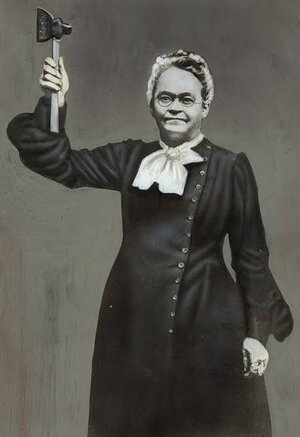
Carry Amelia Moore was born in Kentucky in 1846. As a young woman, she married Charles Gloyd, whose hard-drinking soon killed him and left Nation alone to support their young child. The experience instilled in Nation a lifelong distaste for alcohol. She later married David Nation, who worked as a preacher and lawyer, and they eventually settled in Kansas. There, she was involved with the Women’s Christian Temperance Union (WCTU). The WCTU was founded in 1874 by women “concerned about the problems alcohol was causing their families and society.” At the time, women lacked many of the same rights as men and their lives could be ruined if their husbands drank too much. In addition to alcohol prohibition, over the years the WCTU lobbied for a long list of social reforms, including women’s suffrage and the fight against tobacco and other drugs.
In 1880, Kansas became the first state to adopt a constitutional provision banning the manufacture and sale of alcohol. However, prohibition was enforced unevenly and with many saloon owners ignoring the ban completely, Nation came to believe she needed to abandon the nonviolent methods of the WCTU in order to make an impact. After the incident at the Carey Hotel, her fame increased as she continued her saloon-smashing campaign in other locations and traveled extensively to speak out in favor of temperance. She sold souvenir hatchets to help fund her activities and used the name Carry A. Nation. Some people viewed her as crusader, while others saw her as a crank.
Nation died in 1911, never living to see nationwide prohibition in America, which was established with the 18th Amendment to the U.S. Constitution and went into effect on January 16, 1920. Prohibition, considered a failure, was repealed on December 5, 1933, by the 21st Amendment.

donbosco
Inconceivable Member
- Messages
- 2,703
"On December 28, 1700, explorer John Lawson — with a party of five Englishmen and various Indian guides— set out from Charleston on a journey through the backcountry of Carolina. In late January 1701, the Lawson expedition crossed into what is now North Carolina in the vicinity of present-day Charlotte. Various Indian tribes were encountered — including the “Esaws,” Sugaree and Catawba — and the explorers resumed their journey along the Trading Path, a route that stretched north and eastward through the interior of the province.
In February, while most of Lawson’s party decided to travel straight to Virginia, Lawson and a companion continued their trek through Carolina. The route eastward led Lawson to Occaneechi Town, near present-day Hillsborough. At Occaneechi, Lawson met an Indian named Enoe Will, who agreed to guide the explorer to the English settlements along the coast, and on February 23, 1701, the explorers reached the English settlements on the “Pampticough” River, near present day Washington.
The expedition lasted 59 days and covered about 550 miles through the forbidding Carolina backcountry. Lawson, with a keen eye for detail, recorded his observations and, in 1709, published A New Voyage to Carolina."

 www.dncr.nc.gov
www.dncr.nc.gov
On the NC part of the journey journey Lawson wrote, "The next Day we travell'd on our Way, and about Noon came up with a Settlement of Santee Indians, there being Plantations lying scattering here and there, for a great many Miles. They came out to meet us, being acquainted with one of our Company, and made us very welcome with fat barbacu'd Venison, which the Woman of the Cabin took and tore in Pieces with her Teeth, so put it into a Mortar, beating it to Rags, afterwards stews it with Water, and other Ingredients, which makes a very savoury Dish." John Lawson, 1674-1711. A New Voyage to Carolina; Containing the Exact Description and Natural History of That Country: Together with the Present State Thereof. And a Journal of a Thousand Miles, Travel'd Thro' Several Nations of Indians. Giving a Particular Account of Their Customs, Manners, &c.
First mention of Barbecue being prepared and consumed in the Carolinas? Unfortunately, the Santee homeland was located in what is today South Carolina. Thankfully there is no specific mention of mustard in Lawson's account.
In February, while most of Lawson’s party decided to travel straight to Virginia, Lawson and a companion continued their trek through Carolina. The route eastward led Lawson to Occaneechi Town, near present-day Hillsborough. At Occaneechi, Lawson met an Indian named Enoe Will, who agreed to guide the explorer to the English settlements along the coast, and on February 23, 1701, the explorers reached the English settlements on the “Pampticough” River, near present day Washington.
The expedition lasted 59 days and covered about 550 miles through the forbidding Carolina backcountry. Lawson, with a keen eye for detail, recorded his observations and, in 1709, published A New Voyage to Carolina."

John Lawson Began His Journey
On December 28, 1700, explorer John Lawson — with a party of five Englishmen and various Indian guides— set out from Charleston on a journey through the backcountry of Carolina.
On the NC part of the journey journey Lawson wrote, "The next Day we travell'd on our Way, and about Noon came up with a Settlement of Santee Indians, there being Plantations lying scattering here and there, for a great many Miles. They came out to meet us, being acquainted with one of our Company, and made us very welcome with fat barbacu'd Venison, which the Woman of the Cabin took and tore in Pieces with her Teeth, so put it into a Mortar, beating it to Rags, afterwards stews it with Water, and other Ingredients, which makes a very savoury Dish." John Lawson, 1674-1711. A New Voyage to Carolina; Containing the Exact Description and Natural History of That Country: Together with the Present State Thereof. And a Journal of a Thousand Miles, Travel'd Thro' Several Nations of Indians. Giving a Particular Account of Their Customs, Manners, &c.
First mention of Barbecue being prepared and consumed in the Carolinas? Unfortunately, the Santee homeland was located in what is today South Carolina. Thankfully there is no specific mention of mustard in Lawson's account.
Lawson’s writings about his explorations are a fabulous read."On December 28, 1700, explorer John Lawson — with a party of five Englishmen and various Indian guides— set out from Charleston on a journey through the backcountry of Carolina. In late January 1701, the Lawson expedition crossed into what is now North Carolina in the vicinity of present-day Charlotte. Various Indian tribes were encountered — including the “Esaws,” Sugaree and Catawba — and the explorers resumed their journey along the Trading Path, a route that stretched north and eastward through the interior of the province.
In February, while most of Lawson’s party decided to travel straight to Virginia, Lawson and a companion continued their trek through Carolina. The route eastward led Lawson to Occaneechi Town, near present-day Hillsborough. At Occaneechi, Lawson met an Indian named Enoe Will, who agreed to guide the explorer to the English settlements along the coast, and on February 23, 1701, the explorers reached the English settlements on the “Pampticough” River, near present day Washington.
The expedition lasted 59 days and covered about 550 miles through the forbidding Carolina backcountry. Lawson, with a keen eye for detail, recorded his observations and, in 1709, published A New Voyage to Carolina."

John Lawson Began His Journey
On December 28, 1700, explorer John Lawson — with a party of five Englishmen and various Indian guides— set out from Charleston on a journey through the backcountry of Carolina.www.dncr.nc.gov
On the NC part of the journey journey Lawson wrote, "The next Day we travell'd on our Way, and about Noon came up with a Settlement of Santee Indians, there being Plantations lying scattering here and there, for a great many Miles. They came out to meet us, being acquainted with one of our Company, and made us very welcome with fat barbacu'd Venison, which the Woman of the Cabin took and tore in Pieces with her Teeth, so put it into a Mortar, beating it to Rags, afterwards stews it with Water, and other Ingredients, which makes a very savoury Dish." John Lawson, 1674-1711. A New Voyage to Carolina; Containing the Exact Description and Natural History of That Country: Together with the Present State Thereof. And a Journal of a Thousand Miles, Travel'd Thro' Several Nations of Indians. Giving a Particular Account of Their Customs, Manners, &c.
First mention of Barbecue being prepared and consumed in the Carolinas? Unfortunately, the Santee homeland was located in what is today South Carolina. Thankfully there is no specific mention of mustard in Lawson's account.
The man accompanying John Lawson in 1711 when Lawson was captured by Tuscarora warriors and killed was Christoph von Graffenreid. Graffenreid returned to Germany and lived well. Later, Graffenreid’s son, Christoph, emigrated to the colonies and succeeded. I don’t think this Graffenreid settled in North Carolina.
He or his descendants changed the name to De Graffenreid. There were numerous DeGraffenreids in the Chapel Hill/Carrboro School System with me. All were black. I assume they were descended from slaves on a De Graffenreid plantation - according to Google/Wikipedia, there was a small plantation just north of where 64-By-Pass and 64 Business split west of Pittsboro. It was the Alston-DeGraffenreid Plantation.
Last edited:
donbosco
Inconceivable Member
- Messages
- 2,703
Lots of Degraffenreaidt’s down in #DeepChatham too - none are white.
Many years ago I was on the grounds of the house you mention on 64. I was with my brother who had some sort of business there that I cannot recollect.
Here’s the application for Historic Preservation dated 1977. It is sponsored by Ike Andrews - I think my brother was working for him around that time, perhaps that was the reason for that visit. Lots of information in that document.
Many years ago I was on the grounds of the house you mention on 64. I was with my brother who had some sort of business there that I cannot recollect.
Here’s the application for Historic Preservation dated 1977. It is sponsored by Ike Andrews - I think my brother was working for him around that time, perhaps that was the reason for that visit. Lots of information in that document.
Thanks for the additional info.Lots of Degraffenreaidt’s down in #DeepChatham too - none are white.
Many years ago I was on the grounds of the house you mention on 64. I was with my brother who had some sort of business there that I cannot recollect.
Here’s the application for Historic Preservation dated 1977. It is sponsored by Ike Andrews - I think my brother was working for him around that time, perhaps that was the reason for that visit. Lots of information in that document.
1) Any idea what shape it’s in today?
2) Now that I think about it, we had a lot of black Alstons in the Chapel Hill/Carrboro schools.
3) Chatham Jack had at least 168 slaves. That was sizable in this area. A guy named Chatham Jack sounds like he fathered a lot of children - slave and white.
Share:

